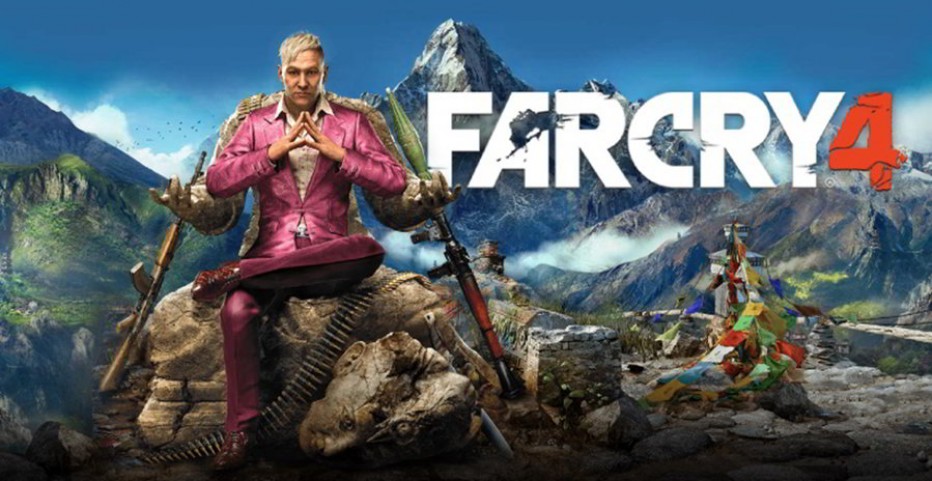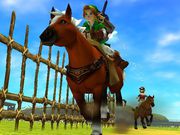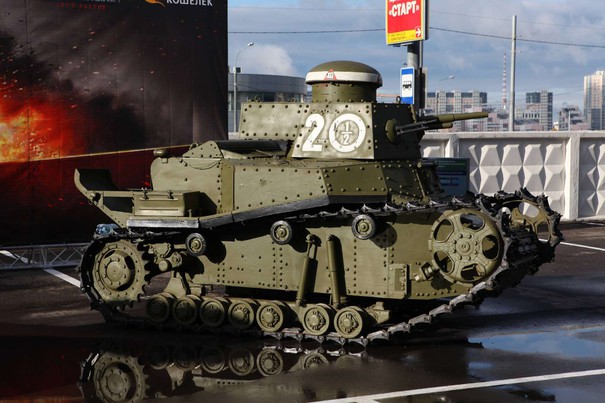

Video game characters are the backbone of any story, not just video games. Without characters, you do not have a story (or a video game). Characters are real, authentic and portray the various emotions, states, moods in perpetually evolving circumstances that unfold through the natural progression of the story. Their actions will positively or negatively effect the interactions and events that wholly define the direction of your story; moreover, the success or failure of creating a character of considerable depth can either make or break your story.
In order to create a video game character, you have to be able to imagine the character in your head. It doesn't stop there either, it is also a good idea to follow these tips when designing a video game character for the first time (and many times afterwards)...
Male or Female
As obvious as this factor is, trust me, it really isn't. Deciding on the gender of a character can have HUGE ramifications in the story to follow and should not be taken lightly. As you probably already know, there are MANY differences between a male and a female. What a male may do in a given situation may not be the same as what a female would do in the exact same situation. You have to understand the differences between a male and a female. Men express their emotions and raw states in a much more direct and predictable fashion; women are more subtle and give sly clues as to their emotions as well as their behavior, forcing others to insinuate what they could mean by their actions.
On that same token, consider the inherent thought behind the actions of both men and women. To drive the point home, here is an example. Suppose we have a male cutthroat who kills a person in a dark alley. The male cutthroat may kill a person in order to steal their valuables and rob the person blind. On the other hand, a female cutthroat who kills a person may just kill in order to satisfy an inner raw state of revenge or payback. You could also apply 'vice versa' to these two cutthroats and be equally justified in your decision.
As you can see, both the man and the woman are cutthroats. However, there is vastly different thoughts behind their actions. Consider this distinction when you decide on creating either a male character or a female character.
Upbringing / Origin
It is vital to identify the type of childhood and early lifestyles the character has been through in order to determine their core personality, emotional triggers and to find out what motivates him or her in life.
Characters that go through traumatic childhoods (such as seeing their parents brutally murdered) may develop trust issues with other people, exhibit a lack of self-confidence, inability to relax and relieve stress, inability to reveal true feelings towards other people and tends to bottle up the emotions, sometimes emotional feelings of revenge for the fallen parents, thoughts of suicide as well as lack of enthusiasm as life unfolds. However, do not always assume that bad qualities are what are produced from trauma. This type of character may be less likely to take things for granted once good things start to happen and can truly appreciate the wonderful people in his/her life. When there is someone worth fighting for, a character from a traumatic childhood can develop a zeal that enables him/her to protect what is precious to the very last breath. Deciding whether a character rises above a trauma or gets crushed underneath it all is completely up to you, the storywriter.
On the flip side, characters that experience a healthy, positive childhood may develop an assertive self-confidence, general trust towards others and heathy relationships as well as an optimistic worldview of life and how it unfolds. However, as may be expected, if the childhood is a spoiled one in which the character is given everything since birth, negative qualities can arise such as greed for material things and power, lack of appreciation for what the person has since he/she is always craving more, regardless of the cost. This type of haughty character may even use the people around his/her social circle to further his/her ambitions to their eventual fruition/destruction. Deciding whether a character learns to care for others and seeks contentment or if the character becomes too greedy and becomes an oppressor is once again up to you, the storywriter.
See how powerful clearly defining the upbringing of a character can have on the natural and "real" character development of a person? Most of the time, identifying the childhood does almost all the work for you in determining what type of personality the person has. You can think of it as "cause and effect". Create the cause and the effect "naturally" follows!
However, you don't want the character to always be the same way from their childhood upbringing. Throughout the story, be ready to introduce events and plotline that will allow the character to experience changes (not necessarily big changes right away, mind you) that may be either full-blown or gradual over the course of the story. When you do this, your reader will appreciate and "care" about the character more and will be more "emotionally invested" to seeing your character progress to fruition because they "knew" the character from the beginning; this change creates great depth within characters and grips the reader.
Factions / Associations
Another great yardstick to consider in creating a character is to determine what type of group or faction (or lack thereof) the character is a part of. If there are opposing sides in a story you are writing, identify what associations the person has will help determine the person's reaction towards certain factions.
For example, consider this dramatization, a French man will generally have a favorable disposition towards others of the same nation as him (Frenchmen) and will have an unfavorable disposition towards an opposing nation such as England and be unfriendly towards Englishmen. Obviously, this may not be necessarily true in real life, but this dramatization proves the point that identifying a faction or side for a character can help shape the politics of your story and flesh out the political and cultural aspects of your character quite nicely.
Archetypes
This yardstick is totally optional but I use this for characters all the time. Defining a personality archetype can give you more insight into a potential character for your video game. Let me elaborate a little bit.
You see the following archetypes all the time and there may be more than what I describe here so do not feel limited to this selection:
There is the "confident assertive" character who has a charismatic personality and exudes the natural qualities of a leader through the way that people are naturally drawn to him/her as a person. The main protagonist of a story usually adopts this archetype.
A "cheerful optimist" character is very positive, high energy and always tries to lighten the mood in any given situation. Female variants are bubbly, perky and very cheery with a girlish laugh who tend to smile a lot and see the good in any circumstance. Male variants are positive with a great sense of humor and sometimes overly-corny jokes that break the ice. They can be serious when they have to be, but are generally light-hearted and get along with the majority of people. These characters can support the protagonist.
An "arrogant aggressive" is basically the polar opposite of a confident assertive and is seen as their rival. Usually very arrogant who like to throw their weight around despite lacking self-confidence and try to oppress others under their heels without regard for the consequences. Most characters of this type would rather not show brute force but rather cunning intellect and indirect, dubious tactics to get their way, normally avoiding a direct confrontation with the protagonist at any cost. Main antagonists usually adopt the arrogant aggressive type.
Here we have the "passive pessimist" character who cries bloody murder and shrieks at the sight of any difficult circumstances, lacks self-confidence to carry him/herself through life's struggles and may be soft-spoken in nature. Always complaining about why things don't work rather than seeing the possibilities. These characters are pretty interesting (either readers are annoyed by them or they "root" for them), especially how they handle pivotal scenes in a story, since these characters can be unpredictable in new circumstances. You can take this archetype and modify it in various ways; it works with henchman of antagonists as well as a very interesting potential protagonist or supporting character for a protagonist. Very flexible archetype.
Last is the "lone wolf" character who has a hard time confiding in other people and would rather be alone to his/her thoughts. This character may be an "over-analyzer" who thinks too deeply into situations and tries to personify a strong, confident, and independent person. Lastly, these characters do not tend to say much overall but speak only when it is very important. Pair a lone wolf with a cheerful optimist and you have very strong dynamics for a story with great imagery.
Now it goes without saying that these archetypes are not without their flexibility. You can mix and match these types, add or remove qualities as well as modify them completely at your whim. The aforementioned examples help to give you base ideas with which you can branch out and make deeper and more interesting characters for your video games.
Final Words
Thank you for sticking with me, fellow readers! I know this guide was a long one but I wanted to give you my unbiased and detailed analyses into character development as this really does make or break your story. I hope you enjoyed my guide and stay tuned for the next article! Take care!



